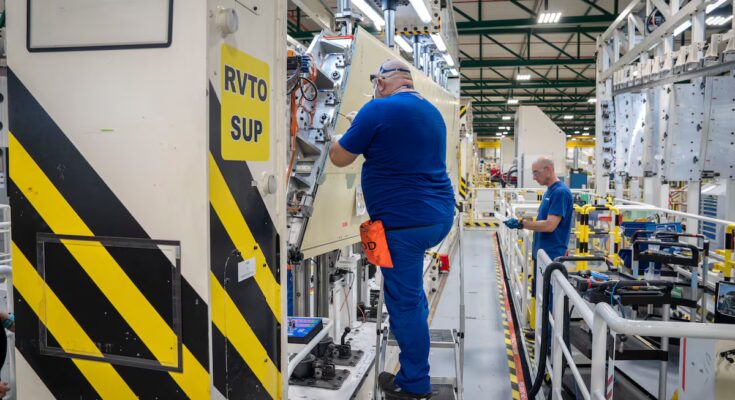The Government recognizes that the Law on Industry and Strategic Autonomy will continue to be blocked in the Congress of Deputies. This was ratified by the extraordinary commissioner for Reindustrialization (dependent on the Ministry of Industry), Jaime Peris, who assured on Wednesday that the legislation currently “does not have a majority” in the Chamber of Deputies, despite the fact that “90% of the speakers from all political, business, trade union and university sectors” agree with the text, which requires companies to give nine months’ notice when proposing an ERE and introduces other requirements in these processes. At the event The impact of sector regulations on restructuring processes organized by LHH, the Adecco Group’s relocation and reindustrialization consultancy, Peris said that the current context “does not help them”, without explicitly referring to Junts’ parliamentary break with the Government, but that they will continue to negotiate to guarantee “the benefits of updating the law, since it is beneficial for all sectors”, which has not been changed for 33 years.
In this session, which was attended by both employers and union representatives, the case of Amazon was also mentioned, which last month proposed an ERE for 1,200 workers at its corporate headquarters in Madrid and Barcelona. The deputy of the Secretariat of Trade Union Action and Strategic Transitions of the CC OO, José Antonio Hernández, underlined that the current legislation allowed the multinational to present an “indecent proposal” with “almost inalienable” conditions. If the requirements established by the text proposed by the Government had been respected, the company would have had to give nine months’ notice. These same demands would have been mandatory for Telefónica, which this week proposed an ERE that would affect between 6,000 and 7,000 employees.
This new deadline was one of the topics that sparked the most debate among the speakers. Jesús Blanco, director of human resources and strategic projects at Bridgestone, said that the new deadline established by the law is incorrect because it generates an “excessive lengthening of the process” which can generate “a schism” between companies and administrations. Marcos Huergo, president of LHH, underlines that these nine months “generate a lot of uncertainty, even for the public administration”. Hernández, for his part, defended that this period is “reasonable” because it “gives time to address more rigorously” all the implications of a process of collective dismissal or workforce restructuring. This communication would be necessary, according to the text, when a company announces a reduction of more than 65% in production in the same work center; a decrease of 500 or more people in the workforce of the same work center; or a cumulative reduction of 750 or more jobs in a group of companies within the same geographic territory.
Another novelty contained in the legislation is that companies that have received public aid worth more than three million euros will be obliged to return it if they present this workforce reduction measure to the Secretary of State for Industry. This implies, in the words of Peris, that “companies do not make sudden decisions that compromise the industrial expectations of the territories”.
After communicating this decision, the law provides for a Reindustrialization Roundtable to be convened with the aim of overturning the decision or seeking alternative measures that minimize the impacts of these layoffs, but at the moment it does not establish their obligatory nature. The CC OO representative defended that this table should be mandatory while the senior Bridgestone official suggested that the establishment of this measure “should be encouraged”.
Also present at the debate was the director general of businesses of the government of Castilla-La Mancha, Santiago Baeza, who defended the need to approve this legislation but called for “co-governance” and “greater participation of autonomous communities” to be introduced more clearly in its development. Furthermore, he specified that negotiations will continue with the automotive company Mahle ERE which will concern 466 employees of the factory in Motilla del Palancar (Cuenca) to ensure that it “manufactures other products” or that another company “can establish and develop” its business in this place.



